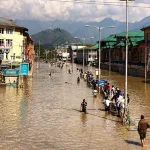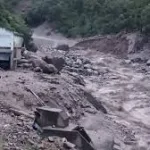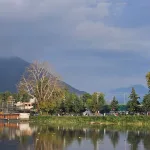Prime Minister Modi’s visits to Bhutan in 2014, 2019 and now in 2024, have further deepened bilateral cooperation across sectors like hydropower, trade and education. The visit by present King of Bhutan, Jigme Khesar Namgyel Wangchuck’s to India in September 2022 and subsequent engagements in April 2023 and November 2023 underscored the robust nature of bilateral relations. Additionally, the King’s visits to Assam and Maharashtra further strengthened ties between Bhutan and these Indian states. Such high-level engagements continue to shape the strategic partnership between India and Bhutan, fostering regional stability and prosperity. Undoubtedly, India is Bhutan’s primary ally for development and has played a pivotal role in Bhutan’s socio-economic progress. India has supported several projects as well as contributed substantially to Bhutan’s developmental aspirations. In early March, just before PM Tobgay’s visit, Bhutan unveiled a 15 billion Bhutanese Ngultrum (Nu) economic stimulus package, with India’s backing, which is aimed at alleviating economic slowdown in key sectors such as tourism, technology and small enterprises. Hydro-power collaboration is a significant cornerstone of the economic partnership between India and Bhutan. In the joint statement issued after Tobgay’s visit, both parties expressed contentment with the advancements made in the construction of the 1020 MW Punatshangchhu-II hydro-power project and anticipated its commissioning in 2024.Furthermore, both countries also agreed to broaden the current India–Bhutan energy alliance to encompass non-hydro renewables like solar and wind energy for enhancing energy efficiency and conservation measures. Interestingly, PM Tobgay’s visit took place amid speculations that Bhutan and China are engaged in negotiations concerning their border dispute, which is reportedly at an advanced stage. This has sparked a lot of interest in India due to its implications for regional security. During his first term as prime minister from 2013 to 2018, Tobgay had initially tried to restore stability in bilateral relations after his predecessor, Jigme Thinley, faced accusations of pursuing anti-India policies, leading to India suspending subsidised LPG supplies to Bhutan. However, as his tenure drew to a close in 2018, PM Tobgay had made a pledge before the National Assembly to cultivate a strategic and enduring relationship with China, aimed at safeguarding Bhutan’s national interests, which had raised concerns in India. His March 2024 visit to India, immediately after assuming office, is expected to assure New Delhi of his intent to pursue a path of deeper engagement and take bilateral relations forward. As for Bhutan–China discussions on the border issue, in October 2023, Bhutan’s former Foreign Minister Tandi Dorji met Chinese counterpart Wang Yi in Beijing. China’s statement on the meeting suggests that Bhutan emphasised adherence to the One-China principle and expressed its willingness to collaborate on resolving the boundary issue. Earlier, in October 2021, China and Bhutan had agreed on a three-step roadmap to resolve their boundary dispute, four years after the Doklam standoff. India was apprehensive about the potential implications of any such settlement on the status of the Doklam plateau, situated near the Bhutan–China–India tri-junction. Nevertheless, India had urged China to adhere to a 2012 agreement stipulating that tri-junction points between India, China and third countries should be determined in consultation with the relevant nations. The deliberate Chinese trespasses into Bhutan’s northern regions, considered sacred by Bhutan but not by Beijing, along with the claim over Sakteng in eastern Bhutan in 2020, detract attention from China’s clear aims in the western area. According to Professor Ian Hall of the Griffith Asia Institute, these objectives primarily revolve around resolving the border dispute by acquiring the Doklam plateau. Such an acquisition would bolster China’s territorial jurisdiction and apply further pressure on India’s Siliguri Corridor, potentially providing leverage for Beijing in future crises with New Delhi.
Understanding Bhutan
Sign Up For Daily Newsletter
Be keep up! Get the latest breaking news delivered straight to your inbox.
By signing up, you agree to our Terms of Use and acknowledge the data practices in our Privacy Policy. You may unsubscribe at any time.
Leave a Comment Leave a Comment







